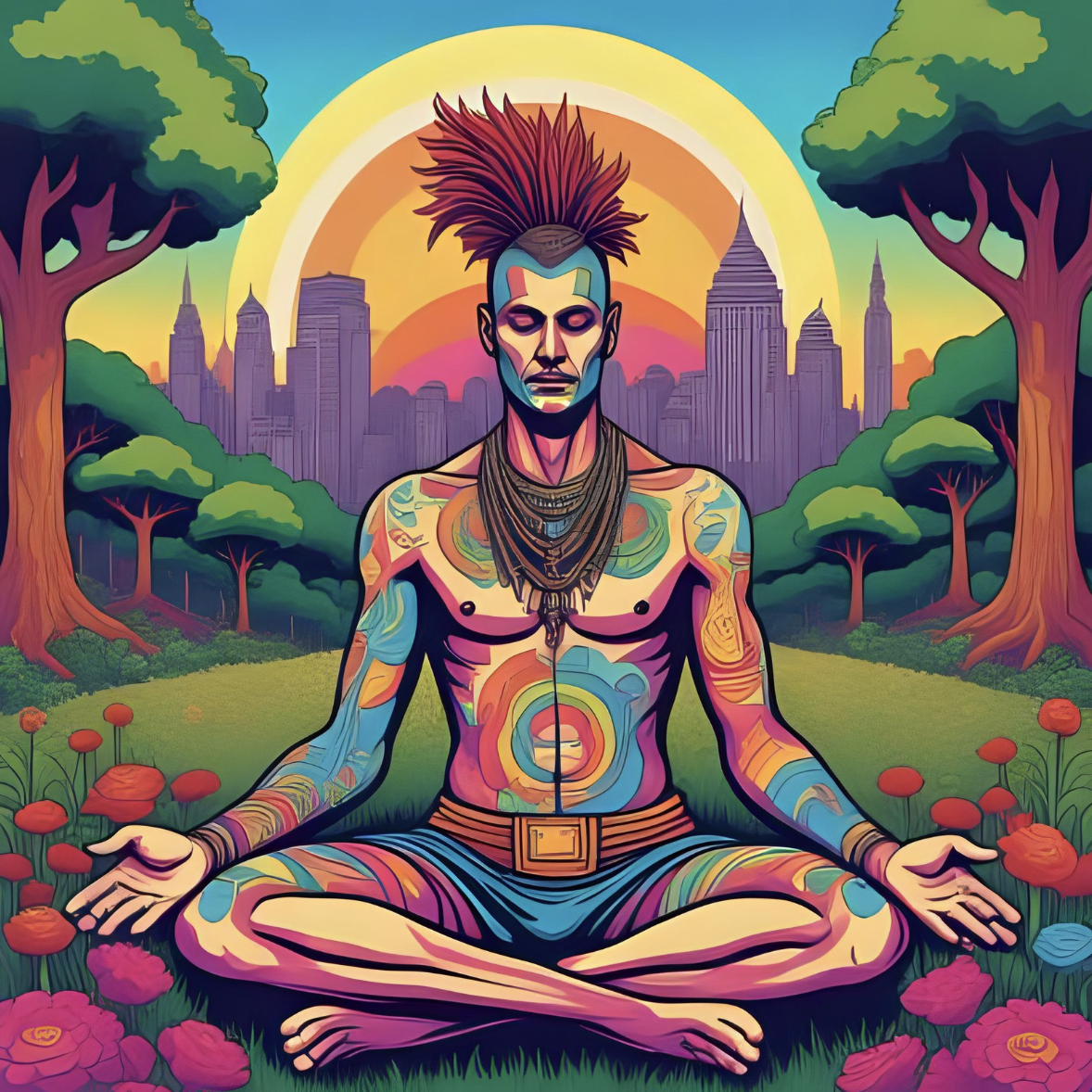
On the surface, it seems like a joke. The chaotic, anarchic energy of punk rock - with its "no future" nihilism - and the serene, mindful path of Buddhism - with its emphasis on compassion, non-attachment, and inner peace - are about as far apart as two philosophies can get. One is all about smashing the system, the other about transcending it.
But if you look closer, you'll find a surprising number of shared threads. Punk rock and Buddhism, in their own unique ways, are both radical paths toward liberation.
Here's How
-
The Rejection of the Status Quo
Punk rock is a rebellion against complacency. It's a howl against the pre-packaged, consumer-driven world that tells you who to be, what to buy, and what to believe. It's about rejecting the "normal" and finding your own voice.
Buddhism, too, begins with a radical rejection of the status quo. The Buddha's enlightenment came from seeing through the illusions of the world - the impermanence of pleasure, the certainty of suffering, and the emptiness of conventional attachments. He rejected the life of a prince to find a deeper truth. Both punk and Buddhism start by saying, "This isn't working."
-
Do It Yourself( "DIY" ethos )
This is a cornerstone of punk. Can't get a record deal? Start your own label. Can't get a gig? Book a show in a basement. The idea is to take back control and create your own reality, instead of waiting for permission.
Buddhism has a similar "DIY" spirit. The Buddha didn't say, "Follow me, and I will save you." He said, "I have shown you the path to liberation, but you must walk it yourself." The work of mindfulness, meditation, and self-inquiry is intensely personal. No one can do the inner work for you. You have to take responsibility for your own awakening.
-
The Embrace of Impermanence
Punk rock, with its raw, often unpolished sound, is a perfect reflection of impermanence. A song is played loud and fast, burns out, and is gone. It's not meant to last forever; its power is in its fleeting moment. The lyrics often scream about the fleeting nature of youth, anger, and the world itself.
Buddhism's central teachings are all about impermanence. It teaches us to see that all things - our bodies, our thoughts, our relationships, our music - are constantly changing. By truly understanding this, we can let go of our attachments and find a sense of freedom. Both punk and Buddhism, in their own ways, remind us that nothing lasts.
-
Compassion and Empathy
While punk is often seen as angry and aggressive, it's also deeply rooted in a fierce compassion for the marginalized. The best punk songs are about a righteous rage against injustice and a solidarity with the outcast.
This is where the punk ethos meets the Buddhist ideal of an awakened heart that is motivated by universal compassion.
-
The Zen of Chaos
So, is a mohawk-sporting Buddhist monk a contradiction in terms? Maybe not. Maybe the spiky, chaotic energy of punk is just one more way to wake up from the slumber of everyday life. Maybe the "no future" isn't about nihilism, but about living fully in the present moment, because that's all there is.
Maybe punk rock is a bell of mindfulness, ringing loud and off-key, reminding us to wake up. And maybe, just maybe, the mosh pit is a form of chaotic meditation, a place where all the ego-driven illusions get smashed, leaving only the raw, shared energy of being alive.